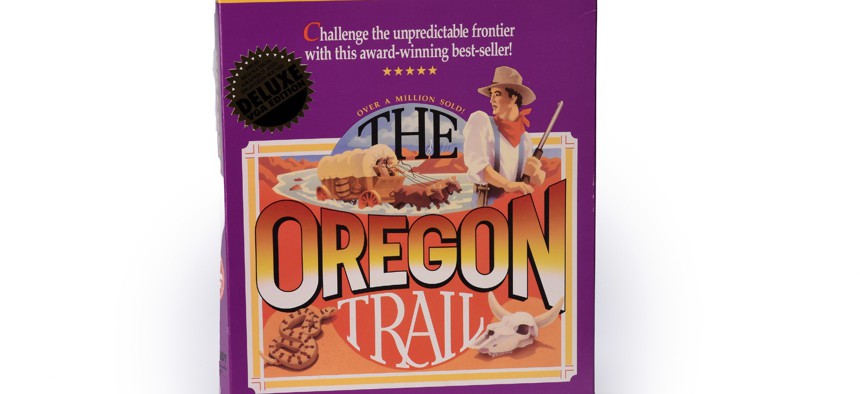The Library of Congress is looking for the next Oregon Trail game

The Library of Congress is holding a contest for video game developers to craft new civics-inspired titles like the popular Oregon Trail game. The Washington Post / Getty Images
Video game developers can win up to $20,000 as part of a new video game contest from the Library of Congress meant to inspire civics-related games.
Calling all video game developers — the Library of Congress wants you to develop the next Oregon Trail.
The 1970’s educational video game, meant to teach students about history by letting them play as settlers making their way West, has inspired the new challenge at the Library of Congress, according to a Tuesday blog from the library.
The challenge is meant “to help improve public knowledge of civics — that is, the rights and responsibilities of citizens — by asking video game developers to create fun, lightweight video games related to civics that incorporate Library of Congress resources,” the blog says.
“The Oregon Trail game still inspires nostalgia. People wear t-shirts with its graphics,” Robert Brammer, chief of external relations at the Law Library of Congress — which proposed the video challenge — said in a statement. “It’s a reminder of how fun learning can be in the right context. We hope this challenge inspires game developers to create fun, lightweight video games in the spirit of Oregon Trail.”
The challenge is part of the Library of Congress’s new Friends’ Choice Award. Donors in the Friends of the Library of Congress voted in 2022 to choose a project to fund, and the proposed video game challenge won out over other proposals from other library divisions.
“The state of civic knowledge in the United States is in crisis. In fact, civics is no longer taught in many states,” the proposal stated.
Last year, civics assessment scores declined for the first time since they started being tracked in 1998, the 2022 National Assessment of Educational Progress found. About half of eighth-graders reported taking a class mainly focused on civics, and only 22% of students were rated as proficient or advanced in civics.
At the same time, cultural divides and political polarization also have stoked debates about how to teach history and civics, such as blowback received by The New York Times’ 1619 Project and related school curriculum, which “aims to reframe the country’s history by placing the consequences of slavery and the contributes of black Americans at the very center of our national narrative.”
Video game entries for the Library of Congress challenge should be nonpartisan, the rules state.
The three top winners will get cash prizes up to $20,000, and their games will be hosted on the library’s website for public use. Developers have until Nov. 27 to enter the contest.






